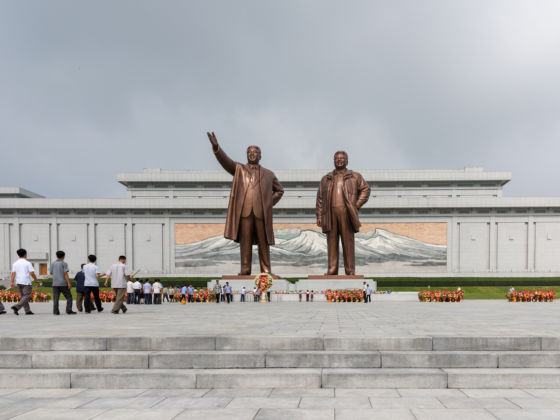The Obama era has been great for American travelers. Through active policies like normalizing ties with Cuba and the Iran nuclear deal, and lucky accidents like North Korea’s softening tourism policy and the democratization of Myanmar, it’s now safe and relatively easy to visit many countries we once considered a legal or functional no-go pariah state.


Yet while intrepid travelers might be tempted to visit every current or former hermit kingdom they can to take advantage of this windfall, it’s worth remembering that even if we’re allowed to visit, we should still avoid some “pariah” states on principle. How should travelers decide?
For one, visitors should consider how tourism in these states actually functions. For example, in Cuba, travelers can spend their travel dollars in ways that benefit locals rather than large firms or the government. Although the influx of tourists does risk (as it always does) twisting local culture to service expectations or degrading local ecosystems (among other issues), if managed properly, Cubans stand to benefit it from the relaxed relations between the two countries.
It’s a similar positive dynamic in Myanmar as well, where locals generally view tourism positively and use it as a venue for novel entrepreneurship and to accelerate mutually beneficial engagement.
In contrast, in North Korea’s tourist system, travelers at best experience passive cultural exchange and may wind up doing more harm than good. With tourists invited in only on state-approved tourism, controlled by minders, and cordoned off in showy parts of the city, there’s no way to actually engage with locals without risking harm to them or yourself. Meanwhile tourism dollars flow not to the wellbeing of those you intend to learn about, but into the coffers of an oppressive security state, which can use tourist presence to legitimize itself and as propaganda on the domestic and international stage. This subverts the intent of good tourism — mutual benefit and understanding between people and culture. And that’s probably why most North Korean refugees recommend that you avoid their nation even if you can visit.
Unfortunately, this perversion of tourism isn’t a risk in North Korea alone. Several of the world’s most isolated states also happen to be security states. Take for instance Turkmenistan, Central Asia’s answer to North Korea, which likewise severely limits interactions with its citizens, controls what you can see, and uses the income you bring into the nation to fund repression and abuse — all while billing itself as a unique and (in the regime’s own view) “welcoming” destination. Same with Eritrea, Africa’s North Korea analog, which shops its touristic potential while restricting engagement at the risk of local lives under the current paranoid, brutal regime.
Othertimes, decisions of where to visit get even more blurry, as with Iran. Iran has been willing to open itself to the outside world, accommodating different cultures’ tourists, to overcome the economic pains of a long sanctions regime. Their rules are not as restrictive as those of other countries, yet there’s still a lesser shade of state control, with guides required for most American travelers. And, a misstep can still get a local into trouble with members of the security apparatus.
It’s a similar conundrum to the one American travelers encounter in parts of China where a strong security presence blurs the line between actual engagement with a country and participation in a system of oppression. Though the oppression in these countries is not as stark, blanket, or inevitable in these nations as it is in a place like North Korea, it still exists, and figuring out whether you can navigate it to achieve something of real, mutual ,benefit is a tricky call for American travelers.
Unfortunately there’s no easy rule of thumb for these cases. Whether or not you visit these places is a decision based on personal judgment — a reasoned internal debate and conclusion as to whether you believe you can achieve something of worth, and minimize your complicity in potential harms by obeying a strict tourist system. Ultimately, if you’re not asking yourself the questions, “What will my presence here mean?” and “What sort of system am I participating in by my visit?”, then you shouldn’t be visiting any of these tender, newly opening states. If you’re just looking to check an “obscure” nation off your bucket list, free of ethical concerns and considerations, just go chill in Mongolia instead.